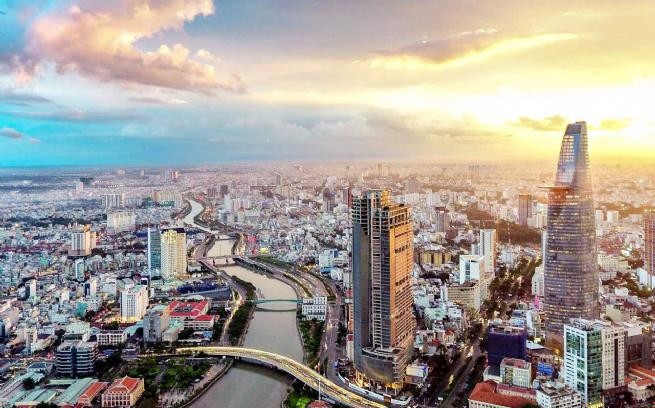

According to ,the November 2023 edition of the WB’s monthly Vietnam Macro Monitoring, the industrial production index in November grew by 2.7% due to the increased production of key export products such as textiles at 4.4 % on-month and electric equipment at 7.9% on-month.
However, prospects remain subdued as Vietnam’s PMI remained in the contractionary territory in November to reach 47.3, the lowest level since May.
Monthly retail sales remained flat at 0.27% in November, with retails sales growth averaging 7.5% on-year between August and November, well below the pre-pandemic growth rates of about 12% annually.
A small sequential fall in exports notwithstanding, the overall performance of exports and imports of goods in November remained resilient amid recovering external demand, increasing by 6.7% on-year and 5.1% on-year, respectively.
However, cumulative exports and imports for the 11-month period remained below the same period in 2022, duly falling by 5.9% on-year and 10.7%, respectively.
Meanwhile, the Consumer Price Index (CPI) inflation remained stable at 3.5% on-year in November, compared with 3.6% on-year in October, well below the target inflation of 4.5%.
Credit growth picked up slightly in November, growing at 10.3% annually, but remained well below the credit growth target of 14.5% set by the SBV, as well as pre-COVID levels of between 12% and 15%.
This performance can be put down to the continued weakness in private investment and investor confidence, partly associated with uncertainty regarding the recovery of external demand as well as the sluggish real estate market. The Government budget revenue collection during the first 11 months of the year fell by 6.2% compared with same period from 2022 amid a slowdown in economic activities.
In contrast, the 11-month cumulative public expenditure accelerated by 10.6% on-year, reflecting the Government’s efforts to support the slowing economy.
Public investment disbursement during the 11-month period grew by 36.3% on-year, but still only constituted 63.4% of the annual capital budget allocation approved by the National Assembly for 2023.
WB experts pointed out that as the economy still faces headwinds, the authorities may consider extending the implementation of the economic support programme for 2022 to 2023 into next year to allow its planned investments to be fully implemented, thereby supporting aggregate demand.
Amid the economic slowdown, financial sector vulnerabilities call for continued vigilance, while efforts to restore confidence and to promote a healthy development of the real estate markets will be key to supporting economic stability in the short term as well as economic growth in the long term, they noted.
Source: VOV